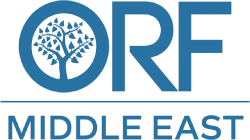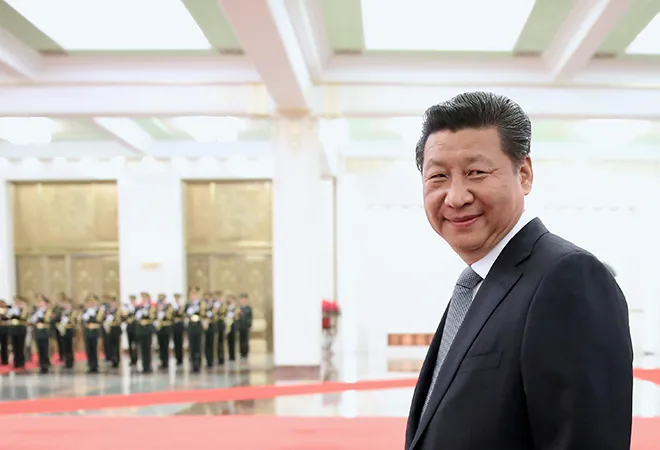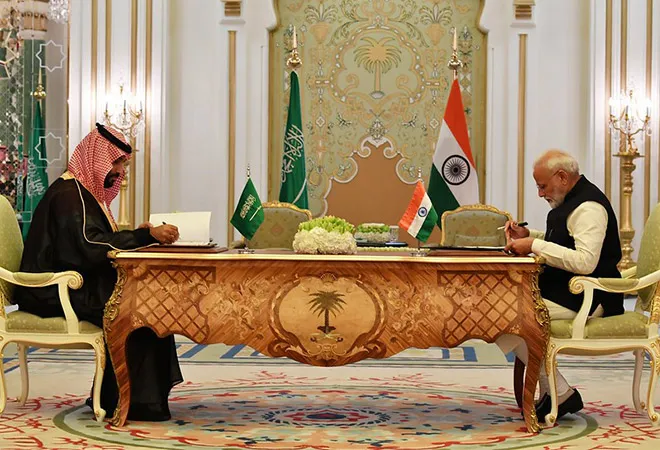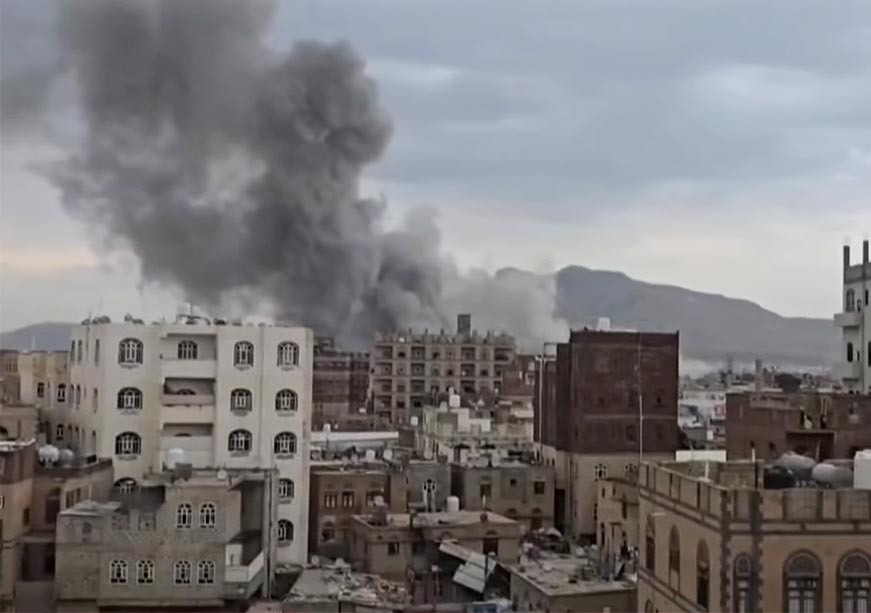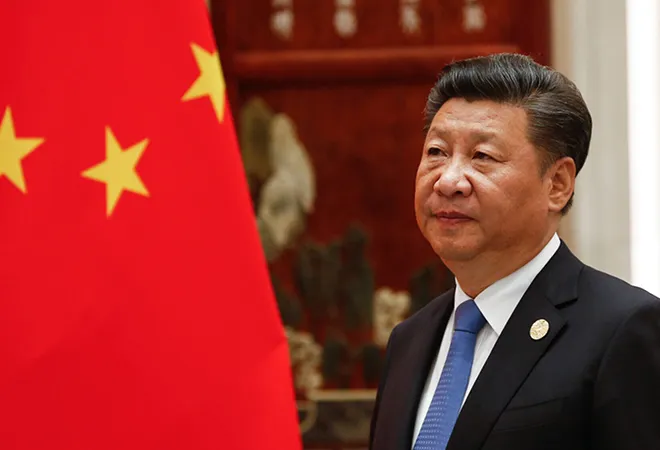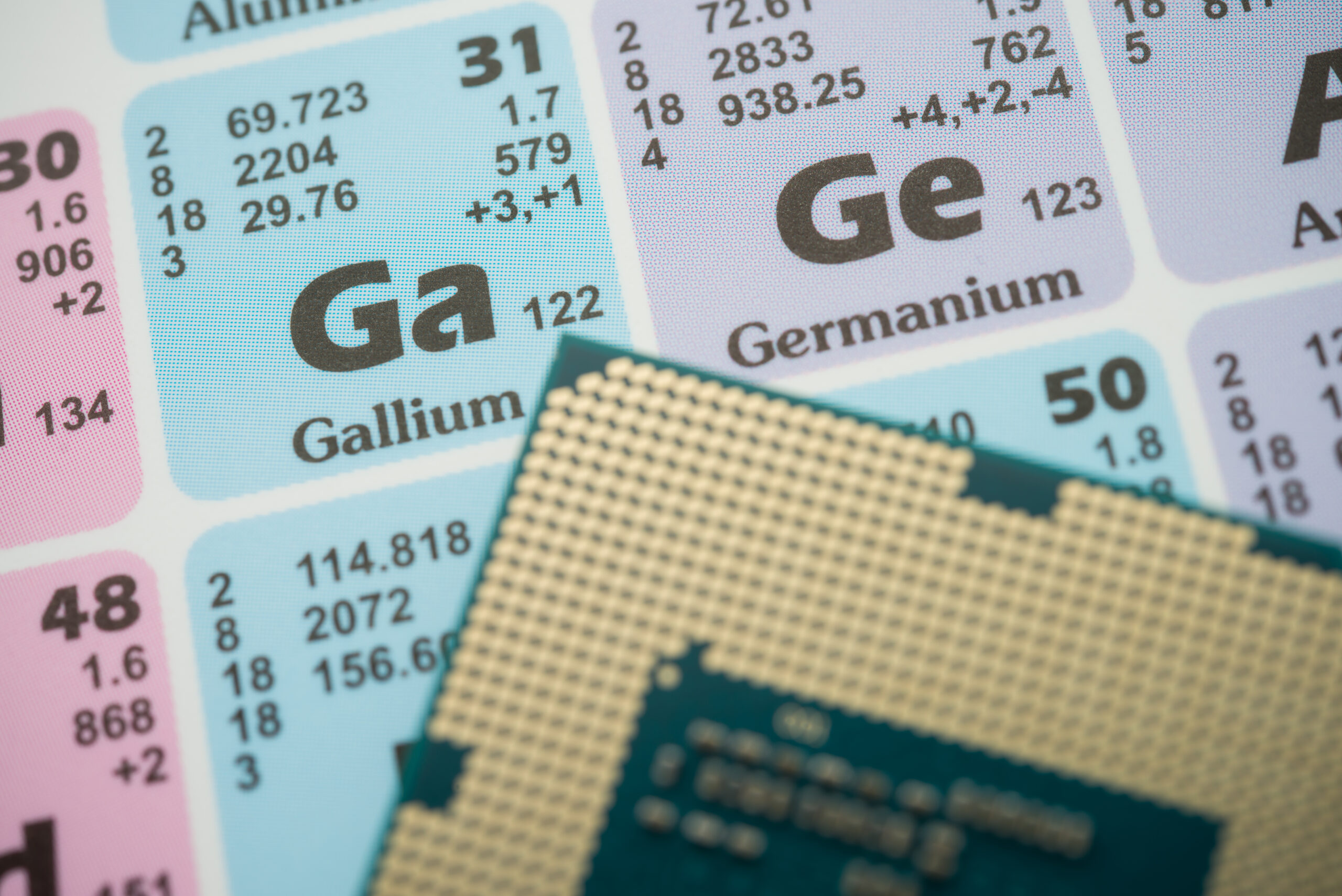As the COVID19 pandemic flares up and countries grapple to respond, China has positioned itself as a good samaritan in public health, introducing a unique kind of power diplomacy. This outreach is perhaps required by Beijing today, at a time of increasing US-China rivalry and speculations over Chinese supremacy around the world. Having endured the virus outburst and multiplied the production of medical equipment, China is well stationed to export and aid countries with its supplies. The Chinese propaganda, engrossed in the Communist Party’s response to the pandemic, appears to be a part of the coordinated campaign to promote Beijing’s dominance, interests and image.
Ever since China successfully contained the virus within its borders, it has been eyeing for opportunities to resume its trade with other countries. Experts believe that their humanitarian aid has political ends which needs a prudent observation. In a recent telephonic conversation with the Italian Prime Minister Giuseppe Conte, Chinese President Xi Jinping expressed his desire to establish a “health silk road” as part of China’s ambitious One Belt One Road Initiative (BRI). This has been perceived with utter criticism from several states that are wary of increasing Chinese leverage and influence. Unfortunately, Iran and Turkey, two important gateways to western markets, have seemingly already bit the bait to China’s game play.
Additionally, the Communist Party’s effort to export their supplies to the world has met with reproval as countries such as Turkey, Netherlands and Spain decided to cease trade over ‘substandard’ and ‘poor’ quality products. Since Iran is engulfed with US sanctions and has limited sources to rely upon, they have accepted all the aid they can to contain the outbreak. Amidst a wall of criticism, China’s COVID-19 diplomacy can only flourish, if the West Asian giants Iran and Turkey stay satisfied.
China, the West, and COVID-19 diplomacy in Iran
The launch of Xi’s overreaching BRI project has amplified Iran’s potential value to China as an important juncture in a progressing regional connectivity network. Because of the US restrictions, trading medical supplies to Iran has been difficult for many companies. Even though Europe through INSTEX – aiming to protect companies doing business with Iran from American sanctions – recently facilitated the export of medical goods to Iran, they are grappling with their own rising virus cases.
The Iranian foreign ministry welcomed the first transaction through the INSTEX mechanism, however, they found it “insufficient”, thereby forcing Iran to majorly rely on China – (which claims to be recovering from the virus) for getting test kits and other medical equipment. As a result, Beijing has been able to woo the Iranians with their donation of over 400,000 masks and a waste disposal facility worth 1 million euros. They have also donated 500 prefabricated rooms with beds, desks and chairs. There have been about 21 aid aircrafts sent from China to Iran overall. More recently, China sent 15 tonnes of medical supplies to Tehran, including 1512 cartons of diagnostic kits, oxygen-breathing apparatus, body temperature monitors, hospital disinfectants, ordinary and N95 masks, clothing, gloves, and protective glasses. In another package, Iran received COVID-19 detection kits, oxygen generators, and anti-coronation drugs from China.
To further its solidarity with Tehran, Beijing sent valuable Chinese Red Cross donations including five medical experts to share their experiences in the fight against the virus. In a tweet, the Iranian Ambassador to China, Mohaammad Keshaavarzzadeh, said: “China is undoubtedly the most experienced in the fight against the Coronavirus and is more determined to help us.” Furthermore, China has been urging the US to remove the sanctions on Iran. “Continued sanction on Iran was against humanitarianism and hampers Iran’s epidemic response and delivery of humanitarian aid by the UN and other organizations,” China’s ministry of foreign affairs said in a tweet.
There is no doubt that China has emerged as an all-weather ally for Tehran, led by the country’s own requirements as it fights a significant outbreak. However, as we have witnessed in the past, Chinese “debt trap diplomacy” often comes into play in the country’s outreach activities, hampering a weaker state’s capacity of self-reliance. Likewise, China’s “humanitarian activities” in Iran could arguably exploit Iran in the future, taking advantage of its current isolation and the ensuing public health emergency. Finding a deeper friend in China amidst the ensuing chaos may require Iran to mollycoddle Beijing’s global visions, such as the “health silk route” and beyond.
The Turkey – China balance
Turkey, the second hardest hit country in the region after Iran saw its first case of COVID-19 on 11 March and since then, the number of cases have risen to 42,282 with a death toll of 908 as per the official data obtained on 10 April. As the fight against the virus shifted from East Asia to West Asia and beyond, China sent 50,000 rapid detection kits to Turkey on 23 March and another 300,000 a few days later. Furthermore, China offered information sharing to Turkey through video conferences on treating patients suffering from COVID-19. Turkish Health Minister Fahrettin Koca stated: “We have brought a special drug used in China, which is claimed to have resulted in improvements in intensive care patients, cutting their time in care from 11-12 days to 4 days.”
Turkey’s geopolitical position, as Iran’s neighbor, is valuable to China’s BRI, facilitating transportation and allowing Chinese products to reach Turkey and Europe easily. President Recep Erdogan, on his visit to China in 2019 said: “The cooperation that has continued among our countries for hundreds of years now also involves the development of the belt and a road.” Demands to increase the trade volume to $50 billion was made. The Ankara – Istanbul High Speed Railway was the first BRI project completed by China in Turkey. Simultaneously, Baku – Tbilisi – Kars railway project got completed in 2017, with Chinese plans of reaching 25,000 km of rail network by 2023 in Turkey alone. Despite these economic initiatives, Ankara and Beijing have disagreed on China’s policies and actions relating to the country’s Uighur Muslim population in the restive Xinjiang province. Turkey, which sees itself as the leader of the Islamic world, on several occasions has staunchly opposed China’s oppression of the Uighurs. However, to not jeopardize their larger economic relationship, Erdogan has not taken any concrete actions against Beijing as well.
While the COVID-19 pandemic has spread from China along the routes of the BRI, Beijing is using those same logistical hubs, ports and corridors to provide medical support to partner countries such as Iran, Turkey and beyond. However, Ankara has also raised concerns on the quality of these supplies. Faulty Chinese equipment included having insufficient filters and failing to fit the mouths adequately, thereby resulting in increased COVID-19 cases in hospitals. A member of the Turkish government’s coronavirus scientific advisory committee, Ates Kara, cautioned on the increased margin of error on the antigen tests, generating a high risk of false negatives.
Meanwhile, Iran might not have the luxury to stop itself from falling into the trap of this Chinese diplomacy, Turkey being an emerging economy has the leisure of denying China’s often roguish outreach – subordination of Uyghur Muslims and supply of cheap faulty medical products.
Highly criticized for covering up and not preventing the virus from turning into a dangerous global pandemic, China is making an effort to reinstate its persona as a symbol of support, strength and leadership. Now that the US and Europe are preoccupied with the pandemic, China is attempting to turn the tables to its favor by delivering aid globally. Despite China being the starting cause of the plague, Beijing is determined to win the post-virus narrative, while the west continues to battle the economic and societal fallouts of the virus. However, “health silk route” and other outreach aside, the post-COVID-19 world may not be the pushover that China may think it is, with countries already lining up to strengthen their domestic laws to ward off China’s predatory policies.
